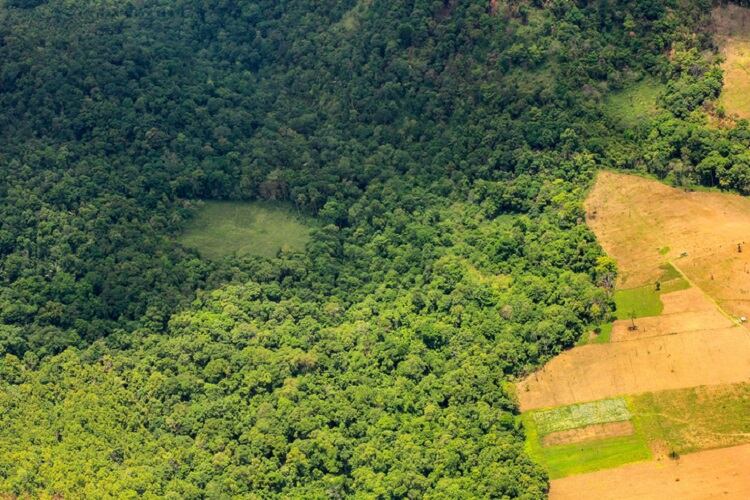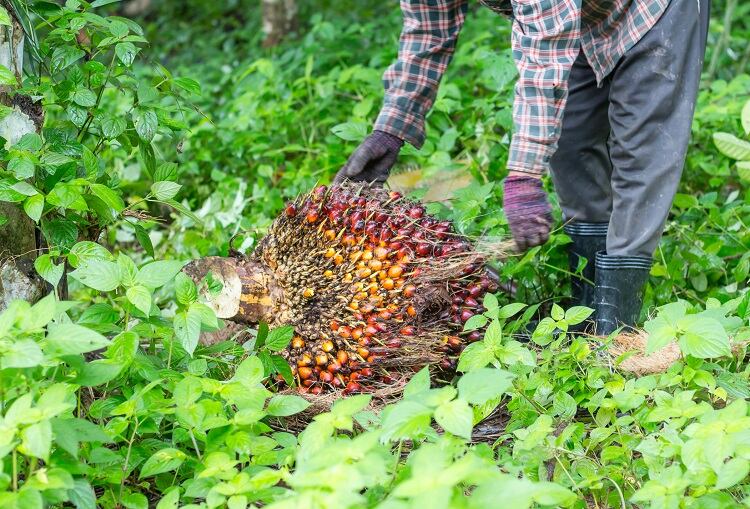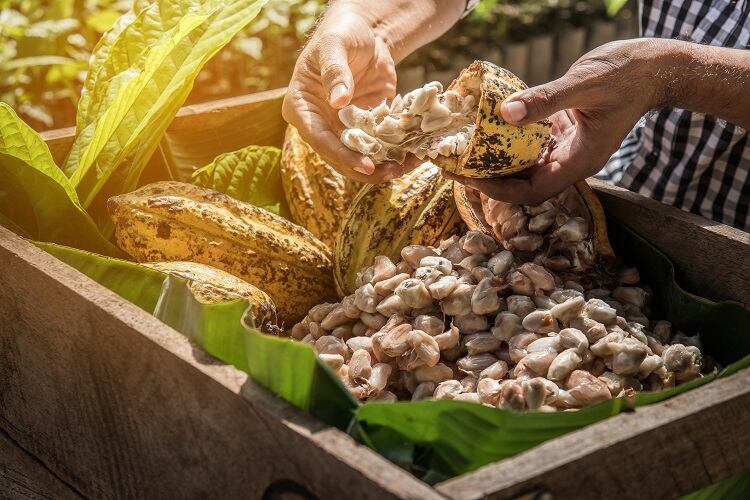The sustainability not-for-profit expects at least two million farmers around the world to use the 2020 Sustainable Agriculture Standard, and from July 2021, all audits will be undertaken against this new standard.
By adhering to the standard, the NGO says stakeholders will change the way commodities – including cocoa, coffee, tea, bananas, forest products, and palm oil – is produced, sourced and consumed.
“The new certification program incorporates new tools to support farmers and companies to set clear sustainability targets and focus investments to improve positive impacts for people and nature,” said Ruth Rennie, director of standards and assurance at the Rainforest Alliance.
“These tools and innovations will support more resilient agriculture and help make responsible business the new normal. This is increasingly urgent in our age of climate change, biodiversity loss, and global inequality.”
Behind the new standard
The decision to enhance existing Rainforest Alliance and UTZ certification programmes came from a desire to move beyond traditional testing parameters, and to bring consumers into the sustainability story.
“Firstly, while certification has had a huge impact in bringing sustainability to the forefront of business thinking, we need new approaches that move beyond a simple pass-fail system and allow producers and companies to understand the sustainability risks they face and focus on continuous improvement of their sustainability performance,” Rennie told FoodNavigator.
“Secondly, consumers are demanding greater transparency about where their products come from and they expect greater responsibility from businesses to show they are having positive environmental and social impact.”
The new Rainforest Alliance certification system has developed an approach focused on collecting better data on sustainability risks and performance, she explained. This includes the use of new tools and technologies, such as GIS mapping to support better analysis and verification of issues such as deforestation.
This, Rennie said, will allow producers and companies to make better decisions about how to improve their performance, and to demonstrate the environmental and social impact they achieve.
And finally, existing certification systems place an ‘unfair level of burden’ on producers to achieve sustainability without offering sufficient reward, the director of standards and assurance argued.
“The new certification system therefore includes a strong focus on enabling the shared responsibility of buyers to reward producers for their efforts to meet sustainable agriculture requirements, and to make the necessary investments to support producers to improve their sustainability performance.”
What’s new in 2020?
Key innovations in the 2020 certification programme include the development of an ‘Assess-and-Address’ approach to tackling human rights issued such as child labour, forced labour, discrimination, and workplace violence and harassment.
In the new certification programme, sustainable sourcing won’t be limited to agricultural practices on the farm. Companies in the supply chain identified as having a high risk of negative social and environmental impacts will also need to implement improved practices.
And concerning deforestation, prohibition will now extend beyond certified producers to the conversion of all natural ecosystems – including wetlands and peatlands.

The new certification programme is also based on more in-depth risk assessment of the social and environmental risks to sustainable agricultural production in different crops and countries, which Rennie said is a ‘tremendous value added for producers and companies’.
“The data collected to identify and analyse the sustainability risks of each organisation that applies for certification means that they are able to focus on addressing the most important issues to comply with the relevant requirements in the standard,” she told this publication. “It also means that auditors can better target their verification to where there is the greatest risk that sustainability standards may not be met.”
Another key focus centres around shared responsibility in achieving sustainable practices. “The focus on shared responsibility in the 2020 Rainforest Alliance Sustainable Agriculture Standard provides practical mechanisms to share the costs and benefits of achieving sustainable agriculture across the supply chain and create greater benefits for producers,” explained Rennie.
“This includes a sustainability differential cash payment to producers to reward them for their sustainability efforts and support improved livelihoods. It also includes shared investments provided by buyers targeted to the needs of producers to achieve certification and improve their sustainability performance.”
And what about smallholder farmers?
Smallholder farmers make up a high proportion of producers of many food commodities in tropical regions, such as palm oil and cocoa.

According to the Roundtable on Sustainable Palm Oil (RPSO), approximately three million smallholder and small-scale farmers make a living from palm oil globally – accounting for about 40% of total palm oil production.
In cocoa, almost 90% of global production comes from smallholdings, according to the International Cocoa Organization (ICCO).
Yet for certification bodies, smallholder farmers can be harder to reach. It is crucial that certification standards in tropical regions make their programmes accessible to these populations.
For smallholders looking to achieve Rainforest Alliance certification, the best way is to team up with a group of producers, Rennie explained.
“The 2020 Rainforest Alliance Sustainable Agriculture Standard includes requirements applicable at farm level and at supply chain level. Farm level requirements for certification will be accessible to individual farmers and producer groups in the same way as the previous standards have been.
“The best way for smallholder farmers to obtain certification is as members of a group of producers. Producer group membership allows smallholder farmers to share the effort of setting up the management and information systems and implementing the training, agricultural practice improvements and social requirements necessary to achieve certification.”


